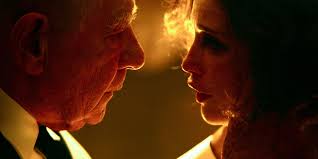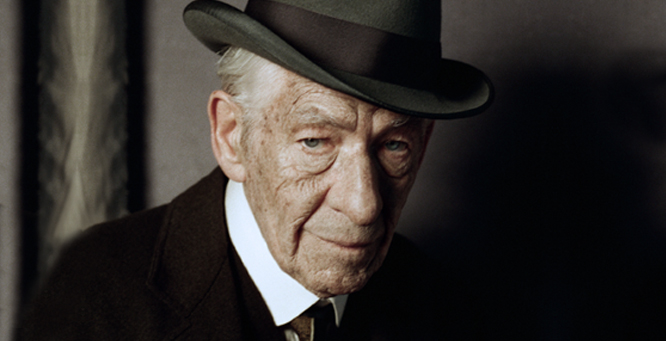
The cynical thriller The Critic is set a hundred years ago, when print media was king. Jimmy (Ian McKellen) is the chief drama critic for a low-brow, mass circulation London newspaper. He’s had the job for forty years, and he sees his job as entertaining the readership with his savage reviews, using a vast vocabulary he knows is above the readers’ grasp. Jimmy’s longevity and prominence has made his voice powerful; he could be expected to sometimes act with mercy and responsibility, but he never does.
Protected by his longtime publisher, Jimmy has become very entitled, and he enjoys perks that exceed the station of a newspaper writer, however erudite. He doesn’t appreciate that others may be put off by his day-drinking, capricious cruelty and general arrogance. His boss’ authority as an aristocrat has also protected Jimmy from the police persecution of homosexuals and from blackmail.
Then the boss dies, and his straitlaced, sexually repressed son (Jeremy Strong) inherits his title and his newspaper. Jimmy’s invulnerability evaporates. Desperate to regain what he stands to lose, Jimmy resorts to blackmail himself. Unpredicted life and death consequences unfold.

Is Jimmy really an unredeemable prick? Will he get his due? The Critic is all about the character of Jimmy, which Ian McKellen plays with gusto and nuance. Watching McKellen is a delicious treat.
The other characters exist to move the plot along for Jimmy, but Strong and the other actors (Gemma Arterton, Aldred Enoch) are very good, and Lesley Manville is perfect, once again.
The Critic is streaming on Amazon, AppleTV, YouTube and Fandango.

